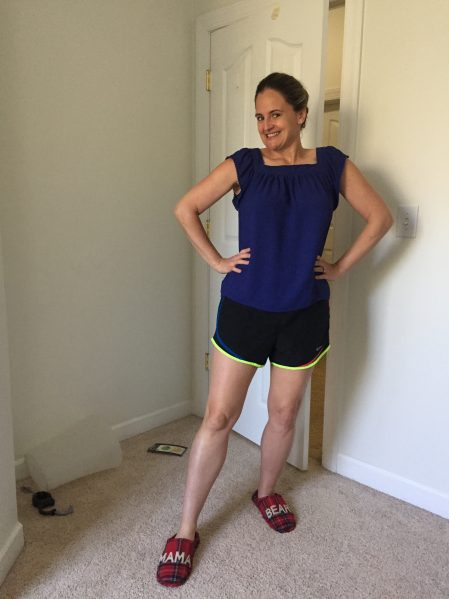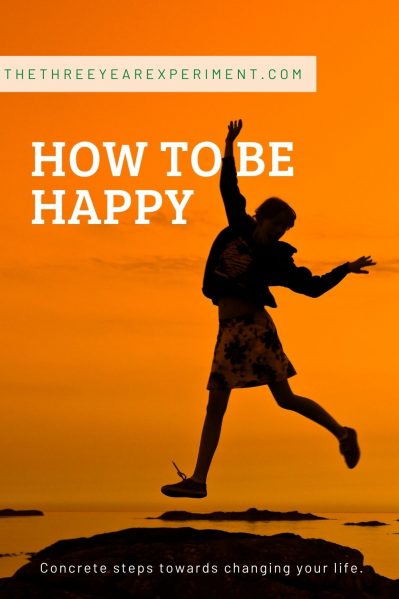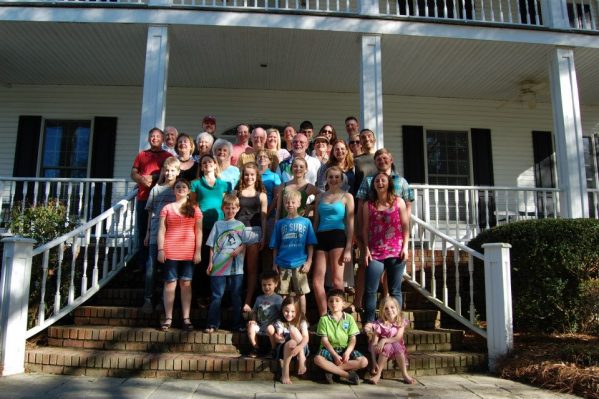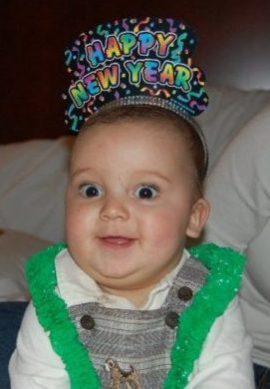We must be willing to let go of the life we have planned, so as to have the life that is waiting for us.
Joseph Campbell
Grasping, grasping, always grasping. We are a dissatisfied species, no?
Maybe you’re someone who looks out over your backyard, as you’ve just hand washed your dishes, noticing the beauty of the sunset, grateful for the ups and downs of your day, convinced you already have every single thing you need right in front of you.
I have those moments, occasionally. I do. I also have a monkey mind that’s always planning, yearning, seeking things to change and improve. “Does she like me?” “When will I get a new fridge?” “My house is outdated. I’m never going to get it fixed up.” “I need, I need, I need…”
Writing helps me tame the beast. It is my form of thinking with my fingers, of taking the ephemeral whisps of thought, of what I know to be true, and pinning them down, shaping and creating them into a philosophy, into meaning, into, perhaps, a plan for living.
I’ve been reading over my old journals. My writing, especially the writing I did pre-blog, was an exercise in formulating meaning, in figuring out a purpose, in discovering my authentic self. While my thinking patterns can often drive me batty, I like the self I find in my journals, the person I am on paper.

Um, what about happiness?
How does this relate to happiness? I imagine you didn’t start reading this post to hear my self-congratulations.
So let me get to the point. Reading my past words has reminded me of some things. Reminded me of the candescent ideas I read, back in 2016, and then wrote down, as I suspected I’d forget their wisdom.
To be happy, I have to be my authentic self.

Life lived = values = purpose
What I think is what I should say is what I should do.
Let’s flesh that out a bit.
I’ve written before about Martin Seligman’s research on well-being. Happiness, it turns out, is a result of well-being. Let me quote myself quoting Seligman:
First of all, what makes us happy? Seligman’s theory is that it is well-being, rather than happiness, that we’re truly after:
“Well-being is a construct; and well-being, not happiness, is the topic of positive psychology. Well-being has five measurable elements (PERMA) that count toward it:
Positive emotion (Of which happiness and life satisfaction are all aspects)
Engagement
Relationships
Meaning and purpose
Accomplishment
No one element defines well-being, but each contributes to it. Some aspects of these five elements are measured subjectively by self-report, but other aspects are measured objectively.”
Martin Seligman
Okay, so, if we believe Seligman’s research, there are really five distinct elements (some of which we can measure objectively, using data) that fit together to create a happy life. We can remember them using the acronym PERMA.
Positive Emotion
The first is P for positive emotion. This is how we feel on a day-to-day basis. This is where our HABITS can really help us. We have great days when we feel like we’ve accomplished things, when we feel connection, when we get enough sleep, enough exercise, enough healthy food. So, if we make it a point to implement good sleep habits, good exercise habits, good drinking habits, develop positive relationships… then we can generally live days that are filled with positive emotion.
If, however, our days end with frustration, with angry fights due to the fact that we drank to much, with muddled thoughts because we didn’t get enough exercise, with wild highs and lows due to the fact that we ate only sugar and carbs, that’s an indicator that our daily habits need work.
Engagement
Engagement, which I just had to go look up, is another name for FLOW. Have you heard of the work of that psychologist with the difficult-to-pronounce name, Mihaly Csikszentmihalyi (whose last name is pronounced something like CHEEK-scents-me-HIGH-yee)?
His research on flow, on working in the zone, where it feels like everything is seamlessly coming together, and you’re able to do your best work (whether that be playing a tennis match, writing a blog post, or diagnosing a patient), has helped us understand how best to create really outstanding work. If you’re consistently able to work in your flow zone, chances are, you’re producing your best work. This, then, helps your sense of accomplishment (see more below) as you’re creating or working at a high level.
How do you regularly achieve high levels of engagement in your work? To be engaged, you need to be working on something challenging that you enjoy doing. Usually, to enjoy doing something, you have to be fairly good at it. So, you’re probably not going to achieve flow in your beginner Mandarin classes. But, if you’re a chef, you probably achieve a lot of flow when you cook a meal, especially a challenging one. This has a corollary–if you want to get good at something, you need to practice, a lot. Talent is not innate, most of the time. It’s the result of lots of practice.
When I’m writing, I occasionally “get in the zone.” I’ll lose track of time and realize I’ve written paragraphs and paragraphs about a certain topic. I do it all the time when I’m teaching.
Figuring out what you’re good at can be hard, but one of the ways you can do it is by figuring out where you have this feeling of flow, of losing all sense of time. Oftentimes we feel that what we do best is “silly” or “easy” because we do it well, and we downplay our skills. But if you can create a profession with skills that seem fun to you, or, decide you want to get good at something and subsequently devote a lot of time to getting good at it, you can create a regular flow state.
The Mad Fientist just released a podcast on this very topic.
Relationships
“I love my family–their laughter, the lines of their faces, how their eyelashes lay when they’re asleep.” -Me
We are wired for relationships. We are wired to feel like we’re part of a group. I was extremely fortunate to be born into a family where I was part of a tribe. My dad’s family, especially, was loud, obnoxious, overbearing, but extremely loving. And I was part of the family. My mom has fantastic interpersonal skills, so she taught me a lot about conflict management. While I’m certainly not perfect, I feel like I have strong relationships in my life, especially with those I’m closest to.

Mr. ThreeYear is the same. He talks to his mom, brother, and sisters every day. Yes, I said every day. They all live in Chile.
One of the reasons Mr. ThreeYear says he fell in love with me is because of my family, and how important we are to one another. That is the same for him.

Even if your family isn’t as large as mine or Mr. ThreeYear’s, or even if your closest relationships aren’t from family, but rather valued close friendships, the quality of the relationships with those closest to you is paramount.
If you’re feeling lonely, that’s a good sign that you need to seek out more quality relationships in your life. Sometimes, when I’ve felt this way, I’ve done something that I felt was a little cliche, like join a group. When my kids were little I joined a moms’ group. It was the best decision ever, because all of the women in the group got me, understood what I was going for, and helped me feel less isolated. The trick is knowing that it will take a little while to form relationships in the group, because relationships take time. You have to give it a few months, and keep showing up, even through the awkward first few meetings.
Meaning and Purpose
I found, when I did my semi-retirement experiment, that if I didn’t have an overarching purpose to my days, I was miserable. I knew this back in 2016, before I did the experiment: “I need some kind of role or job that is professional–that allows me to earn an income, think, achieve and have an identity outside that of mother/wife. I love to learn. I love to do new thinkings. I also love recognition. I like to have goals.”
Perhaps this is why some people who retire with no hobbies or interests to fall back on have poor outcomes. People need to feel needed, to feel important. Isn’t that the whole theme of the mind-bending Prime series Utopia?
When Mr. ThreeYear and I think about retirement, this is my big concern. We will need to find meaningful activities to fill our days (preferably ones that allow us to be in the flow, too). We have both talked about continuing to work, but in roles that occupy less time and allow for more scheduling flexibility.
Accomplishment
“Success is liking yourself, liking what you do, and liking how you do it.”
-Maya Angelou
I thrive on accomplishment. I like goal-setting, and talk about it a lot on this blog. Heck, the name of the blog is a hat tap to goal-setting. Can I achieve the goals that I set for myself at the end of 2016 by the end of 2019? Yes and no. Ha!
I have seen a disturbing trend in recent years where people, especially young men, are writing blogs that advise people to “spend all your free time hustling so you can create your own business” or something similar.
While I have seen this model work, specifically for my sister and brother-in-law, who spent years of evenings working on their business, which has become very successful, I’ve also seen people burn out, ignore the people they love, or have unrealistic expectations for themselves, especially women with young children.
Unfortunately, our society values raising good kids less and less, in favor of having your own business, or being independently wealthy. I sound like an old fogey here, but I think, when we think about accomplishment, we need to divorce ourselves a bit from society’s expectations and instead think about what our values are. Are our accomplishments in line with the things that are important to us?
For me, the goals I set in my three-year experiment were. I wanted to be closer to my family and wanted to be financially secure, and we did eventually meet both those goals (although we’re not yet ready to call ourselves financially independent since we haven’t replaced our incomes with our investments).
Know Thyself
The more we understand ourselves, the better we’re able to understand how others see us and improve our relationships. I have taken multiple personality tests over the years to understand my very intense, dominant personality. On Myers-Briggs, I am ENTJ-T, the Commander. On the Enneagram, I am the Type 8, the Challenger. I don’t necessarily need to be in charge, I just need to know who is. And I need to know they have a clear plan. I have high expectations of myself and others. And, I am infinitely more complicated than all of that.
I think when we can understand ourselves, and understand our motivations, it will help us have the courage to live an authentic life, to do things that are important to us.
I know that for me:
I really, really love my family. I usually put my family’s well-being above anything else.
I love to learn.
I love to feel like I am in control of my time.
The spendy part of myself always disappoints the frugal part of myself.
I can have good days, but still feel rage.
Being productive and efficient makes me happy.
I’m an extrovert and need to be around lots of different people to be happy.
My mind is so crazy that I crave a simple, calm environment.
One of the ways I figured a lot of this out was by journaling. I printed out a page of questions, and spent some time really thinking about the answers. Finding time to myself has always been challenging, but getting up early in the mornings was a way I could write out some thoughts and think about what was really important to me.
I read books, too–books on the Enneagram, books on relationships, books on being a parent.
Final Thoughts
“A lot of happiness comes from more financial security, I have to admit. Working hard for that was worth it.” -Me
For me, financial security means more choices, more stability, more peace. It means the same for Mr. ThreeYear. We joke that we are the “poor family” of the neighborhood, but really, we are the Millionaires Next Door, the non-showy, old-car-driving, small-house-living, non-Tory-Birch-or-Lily-Pulitzer-wearing, savers next door.
Am I happy? I have had some extreme ups-and-downs in the last several months, thanks in large part to Covid and the resulting work-shift I had. I know I am not alone here, and I am very grateful the disruptions to my life weren’t greater, as they have been for so many people all over the world. If this is you, please know my heart goes out to you.
Overall, I feel like parts of my life are conducive to my well-being, and other parts are not. I’m currently doing well in relationships and meaning and purpose, but could use some work in the positive emotion and accomplishment categories. Specifically, I need to be exercising more, and doing a bit better in using my evenings wisely (less book reading, more housework), and I need to find a goal to work towards (writing a book, maybe??).
If you’ve reached the end of this article and feel no closer to happiness than you were before, I have one more idea for you: replace one bad habit in your life with a good habit. Just one. Sometimes, it really is the smallest things that can create lasting happiness.
Here’s to yours!



Love these types of posts. I think along similar lines about values and being useful/having purpose. Teaching, at the moment, is fulfilling my need to feel useful! As for personalities, I’m INFJ, but now you’ve inspired me to go retake the Enneagram test. Type 9 followed closely by type 1! Low profile + following the rules, I sound so boring. 🙂